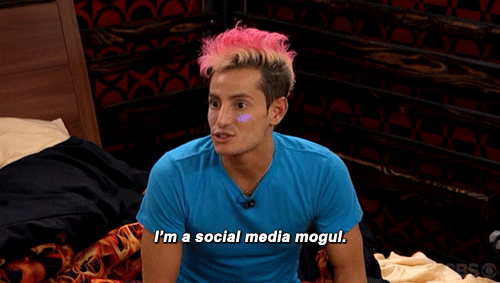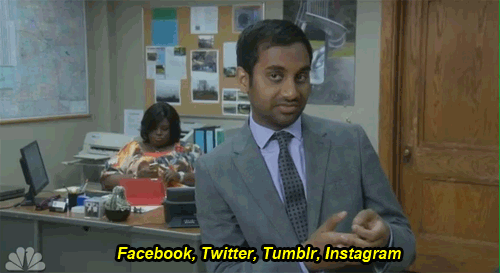When considering you for a job, employers will carefully pore over your resume, cover letter and transcript, searching for anything that separates you from the competition. But, they also could look at your social media profiles and how you use them just as closely. That’s right guys, take those drinking pictures down from Facebook pronto. You may not think your social media profiles can be used any way other than, well, socially, but you’re sadly mistaken. What if we told you that your Twitter timeline can act as a reputable reference for your next job?
1. Include opinions sparingly

Typing up an angry religious Facebook post or retweeting controversial political article may be your favorite pastime while on social media, but it may not serve as the best move for your career. “Not everyone will discriminate, but people might get the impression that you could be high maintenance or cause trouble,” said Dr. Karen Riggs, a professor in Ohio University’s School of Media Arts and Studies and coordinator of the school’s social media certificate. Keep in mind that even if you’re very easygoing in person, employers won’t know this just from your web presence.
2. Tailor your online persona

For people who rely heavily on social media to promote their careers, being perceived positively is a major key. “My Twitter persona is also very different from Facebook,” aspiring comedy writer Amie Miller said. Creating a unique and professional profile makes it easier for potential employers to find you and for you to keep in contact with the people who can influence your career the most. Honestly, though, when it comes to professional personas, could we be any more thankful for LinkedIn?
3. Work as a team

One of the biggest benefits of social media lies in its ability for you to collaborate and gain support from other people in your field. “There are a lot of different Twitter chats where teachers of all ages, subjects, etc. from all over the country respond to questions posed by teacher-related Twitter accounts,” Ohio University education major Hannah Shires said. Interacting with other professionals online will give you a chance to learn from people you might not otherwise have a chance to meet, expanding your network and promoting the exchange of ideas.
4. Give as much as you get

If you’re looking for a job, it can be tempting to narrow your focus to just that goal. But who would’ve thought that helping other people could land you that position that you’re vying for? “Social networking is a give and take process,” Riggs said. “When people get useful information without an apparent motive, they’re apt to appreciate it.” By offering help now, you’re proving to others in your professional network that you’re already a diamond that doesn’t need to be shined.
5. Don’t use all social media the same way

With so many different social networking sites to log onto, most people choose to either be a faithful user of one or use many sites in similar ways, copying and pasting content from one profile to the next. However, taking a little extra time to figure out how each social media account should be used might enhance your experience as a user or future employee. “I don’t like using Facebook as a promoting tool,” Miller said. “Twitter is more direct and it makes it easier to network because you don’t have to wait for a friend request.” Riggs advises to figure out which social networks you can use most productively and divide your time and energy efficiently among them.
6. Create your own section of the web

Social media sites may introduce you to that important employer connect and allow you to easily share information, but creating a personal website or blog can serve as a sort of homebase for your online presence. These platforms give potential employers a place to see all your social media accounts as well as projects that you’ve worked on. “Make sure all your web locations point to all others so people can find your work and communication channels,” Riggs said. Platforms such as WordPress and Squarespace allow you to create easily customizable websites and blogs, while Journo Portfolio and Seelio are aimed more at creating writing portfolios to display your work.
7. Make your personal presence professional

When it comes to appearing professional online, you can never be too careful. We’ve all heard the horror stories of people getting turned down for jobs because of an embarrassing Facebook photo, but believe it or not, professionalism goes much further than that. “All your bio photos at this point should at least not look amateurish,” Riggs said. “Employers look closely at a candidate’s social media presence. Don’t give them a reason to dislike you. Leave the beer pong out.” If you’re serious about your job search, it’s time to unlike all those Facebook pages from seventh grade and upgrade your LinkedIn profile from your favorite club selfie to one that’s employer-approved.



















